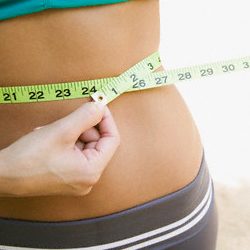Arlene Normand has built a strong business over ten years dealing with thousands of clients from all walks of life with a common goal – to lose and maintain weight loss.
I am 12kg overweight. The recommended length of cardio exercise or walking used to be 30 minutes four times a week – which I do. They have now increased this to 60 minutes for weight loss. Do you think I need to do more? I have such a busy schedule it is difficult to fit in.
Any exercise is better than nothing. Recent studies indicate that with the sedentary lifestyle most of us lead, a 60-90 minute walk daily is necessary to lose weight. I suggest you buy yourself a pedometer (www.arlenesway.com.au) and focus on achieving 10000 steps each day.
This is the minimum amount of exercise necessary to reduce the risk of heart disease, diabetes, and lose weight. If you cannot fit in the 60 minutes of exercise increase the intensity and walk faster. Try and do short bursts of exercise throughout the day – four 15-minute walks (before work, at lunch, after work, and after dinner).
To lose weight you also have to be aware of the selection of foods you make and the portions you are consuming. It is a lifestyle – both exercise and eating – that need to be altered to achieve your goals.
How often should I weigh myself, when should I weigh myself? Morning, night, before or after breakfast?
You should weigh yourself when you get up in the morning, ideally with no clothes on. If you are weighing yourself at the gym, ensure you weigh yourself the same time of the day and wearing similar clothing. I tell people to weigh themselves on a Friday morning (before the weekend) and on a Monday morning (after the weekend), as it is on the weekend when we are not in a routine that most of the damage is done. Do not weigh yourself more often than this as your weight does fluctuate through the week, which can lead to distress.
The weight on the scale is not the only indicator of weight loss. When you are doing weights, or a lot of exercise you will build muscle. Muscle is heavier than fat. Consequently if you lose fat and build muscle, your weight might not fluctuate – take your measurements.
The body fat measurement techniques eg. Skin fold callipers, body-fat scale, are not very accurate. The biomedical impedance is sensitive to level of hydration. Clothes are a good indication of your measurements – a tight pair of pants will immediately indicate a rise in kilos!
I do not eat much fruit or vegetables but I drink a lot of fruit juice and vegetable juices. I am trying to lose weight and wondered how fattening the juices are?
Eating the fruit and vegetables is advisable if you want to lose weight. The whole fruit or vegetable contains at least 70% water and fibre, which is filling with few calories. In addition, chewing takes time whereas drinking is very quick so consequently it is less satisfying.
A glass of fruit juice is high in calories as it is more concentrated in sugars. It is necessary to squeeze at least three oranges to fill a glass with juice, whereas you wouldn’t eat more than one orange. Vegetable juices are better choices than fruit juices if you want to lose weight, as they are lower in sugar. However, it is preferable for you to eat the vegetables and benefit from the fibre.
How can I include a glass of wine in the evening on your diet? I like to have it at about 6pm it just helps me relax.
You are entitled to relax with a glass of wine each evening. Replace your “supper” with 150ml wine or a tot of spirits. Keep your intake to one glass, as the calorie intake of alcohol is high. One gram of alcohol is 7 calories whereas one gram of protein or carbohydrates is only 4 calories.
If you do have spirits always use a low joule mixer. You can stretch out the enjoyment of your wine by filling the glass up with sparkling mineral water and having a spritzer.
I put on so much weight when I was pregnant. My baby is five months old and I am still breast-feeding, but am putting on more weight. Can I follow your diet or should I make some alterations? Can I start exercising?
Breast-feeding does not alter your ability to lead a normal life. Provided you have had the OK (your postnatal check-up) from your doctor you should definitely start exercising. Wear a good supporting brassiere and start walking. You should put the baby in the pram and do a daily hour walk – it is good to get out of the house, you will benefit both physically and emotionally. Another option is to do an exercise video at home, or join a gym where there are childcare facilities.
The eating plan I have prescribed is acceptable provided you have three serves of dairy products a day to satisfy your RDI for calcium. I have made provision for two cups of milk each day, so add in a yoghurt, 30g cheese or another cup of milk. Basically I have prescribed a balanced diet of three meals and snacks.
